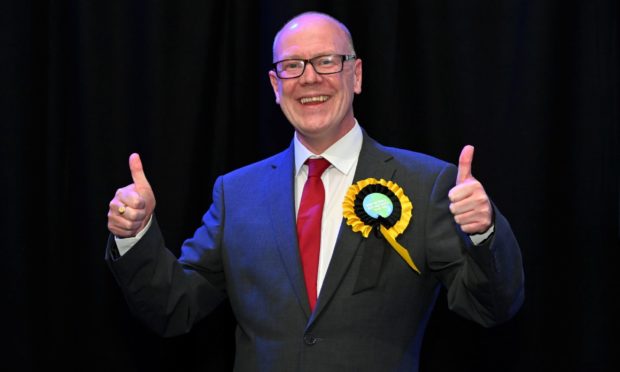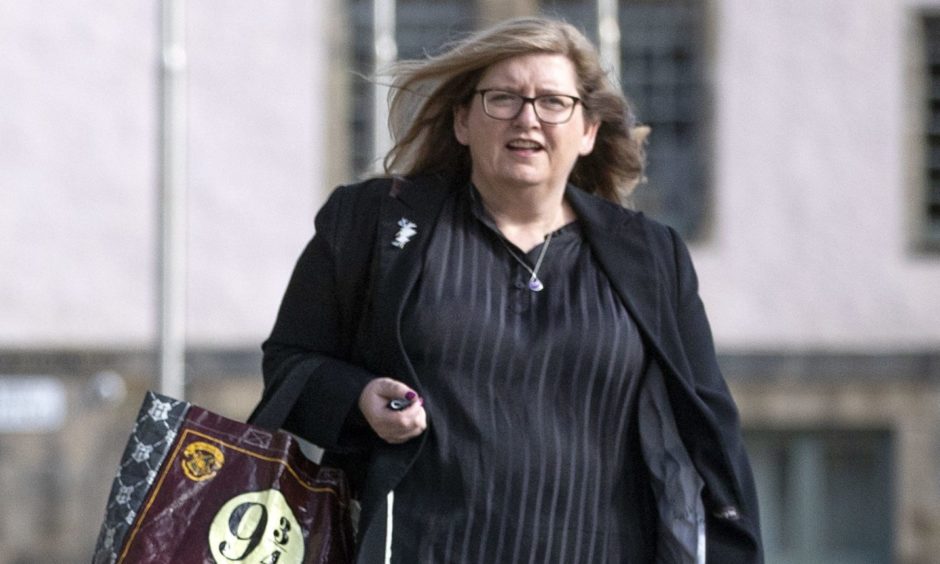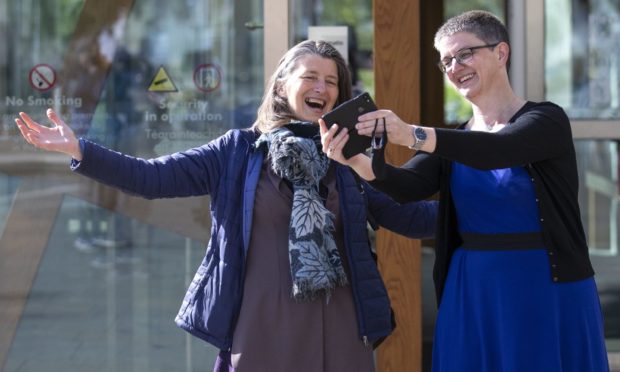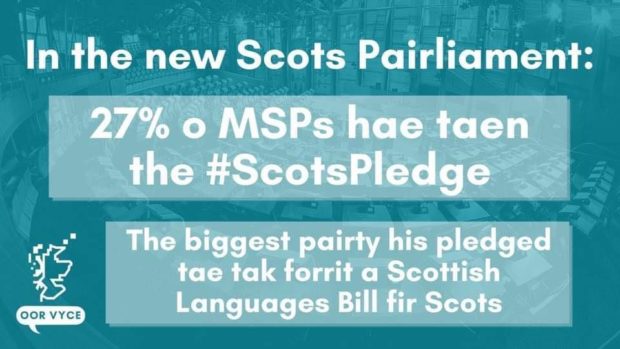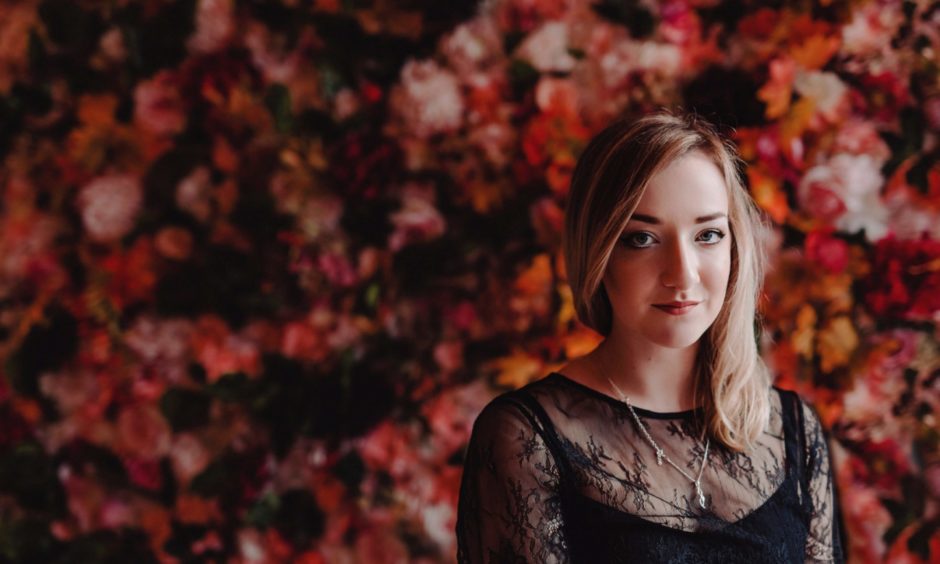On Thursday all the newly elected MSPs will take their oaths or affirmations at Holyrood as they are officially sworn into the Scottish Parliament.
Taking the oath or affirmation is the first thing all the MSPs must do before they can start their parliamentary business, and although it officially has to be done in English, many are planning to repeat it in Scots, Doric, Orcadian, Gaelic and even Zimbabwean Shona.
The oath has members “swear that I will be faithful and bear true allegiance to Her Majesty Queen Elizabeth” and ends with the statement “so help me God”.
The affirmation, on the other hand, has members “solemnly, sincerely and truly declare and affirm that I will be faithful and bear true allegiance to Her Majesty Queen Elizabeth”, and does not include any religious references.
Who will be reciting their oaths in the mither tongue?
After reciting the lines of the oath or affirmation in English, a number of MSPs are planning to repeat it again in some form of Scots.
Kevin Stewart, MSP for Aberdeen Central, said: “Just as I did in 2011 and 2016, I will be taking my oath in both English and Doric – Doric is my mither tongue and, as always, I will do all that I can to promote it.
“I am proud to speak Doric and even more proud to hear it spoken every single day here in Aberdeen.
“We can never downplay its significance to our culture in the north east but also right across Scotland too.”
Gillian Martin, MSP for Aberdeenshire East will also recite it in Doric on Thursday.
She said: “As I represent the people in the eastern part of Aberdeenshire it is important to me to take the affirmation in the mither tongue which so many of us speak in our everyday lives.
“Foo many o us wur telt tae spik ‘proper’ faun we wer bairns in the skweel?
“Doric an the Scots leid is proper, an belongs in wir pairliament.”
Another north-east MSP, Jackie Dunbar, who represents Aberdeen Donside, added: “As I committed during my election campaign, I will be proudly taking my oath in both English and Doric.
“I grew up speaking Doric and I’m looking forward to joining other north east MSPs to continue this tradition in parliament.
“It is a privilege to represent my local community and I am looking forward to doing this by completing my oath in Doric.”
Alison Johnstone (Green MSP for Lothian), Clare Adamson (SNP MSP for Motherwell and Wishaw) and Emma Harper (SNP MSP for South Scotland) will be doing it in Scots, and Neil Gray (MSP for Airdrie and Shotts) will be doing it in Orcadian).
What about Scottish Gaelic?
As well as Scots, some MSPs will be reciting the oath or affirmation in Gaelic.
One of those is going to be Alasdair Allan, MSP for Na h-Eileanan an Iar (Western Isles).
The Stornoway-based MSP said: “I will be taking the oath in Gaelic and English.
“As for a reason for doing it in Gaelic, to be honest, I think more explanation would be required if the MSP for the Western Isles was not doing this.”
Kate Forbes, MSP for Skye, Lochaber and Badenoch, has previously spoken in Gaelic in the debating chamber, and will be saying her oath in Gaelic as well.
Ariane Burgess (Highlands and Islands), Donald Cameron (Highlands and Islands), Ruth Maguire (Cunninghame South), Emma Roddick (Highlands and Islands) and Maree Todd (Caithness, Sutherland and Ross) will all also be doing their oaths or affirmations in Gaelic.
Other languages to be spoken will include Angus Robertson (Edinburgh Central) reciting in German, Humza Yousaf (Glasgow Pollock) and Kaukab Stewart (Glasgow Kelvin) in Urdu, Anas Sarwar (Glasgow) in Arabic, Pam Gosal (West Scotland) in Punjabi, Rachael Hamilton (Ettrick, Roxburgh and Berwickshire) in Welsh, Elena Whitman (Carrick, Cumnock and Doon Valley) in Canadian French, and Karen Adam (Banffshire and Buchan Coast) in British Sign Language.
Maggie Chapman, the newly-elected Green MSP for the North-East, will be doing it in Zimbabwean Shona.
Maggie Chapman said: “Shona is the majority language of Zimbabwe and I was born and brought up there.
“I am not a native speaker but it is the language of my country of birth so I am bringing a little bit of Africa into the parliament chamber – I expect it will be the first time the oath is done in Shona.
“My mum still lives in the house I was born in so it is still very much home, if you can have two homes.
“It is a wonderful thing to celebrate the different heritages of the different parliamentarians and it says something about our openness to the rest of the world as well.
“There is an opportunity here to bring something from the other side of the world into the chamber and that is really quite special.”
She added: “My mum is not the greatest at technology but I am hoping a friend can get her set up to watch Parliament TV.
“My partner will also be watching from home and can send it to her so, one way or another, she will be able to see it.”
New MSPs take the Scots Language Pledge
Scots language group Oor Vyce introduced the Scots Language Pledge, and tried to encourage as many candidates in the 2021 election to sign it as possible.
A total of 35 out of the 129 MSPs elected last week had signed the pledge.
The pledge states:
- Recognise Scots and all its varieties (such as Doric, Shetland, Orcadian, etc.) as a legitimate living language and consider the needs of its speakers
- Raise the language’s profile in their constituency, the chamber, their parliamentary office and beyond
- Support, in principle, the idea of legislative action to protect, empower and promote Scots
Singer Iona Fyfe is one of those in the Oor Vyce group encouraging the MSPs to take their oaths and affirmations in Scots.
She said: “What is quite important is these are MSPs from all political pairties, not just the SNP.
“Tory MSPs and Greens (have signed the pledge) and that’s really important because farmers and fisherman who identify as Conservative spik Doric and fowk from Glasgow who are heavy Labour voters spik Scots as well.
“Immediately we can see a show of support based on how the MSPs conduct themselves wi their oath.
“It is the first example of them supporting the pledge and the first opportunity tae show they are taking the pledge seriously.
“All eyes are on the next cohort and their different dialects – Neil Gray will do it in Orcadian, and Gillian Martin and Kevin Stewart will be doing it in Doric.
🎉 The new Scots Pairliament is a Scots-supportin ane, wi 35 oot o the 129 electit MSPs haein taen oor #Scotspledge!
👏 Here's luikin forrit tae seein MSPs staanin up fir the leid an supportin the pairty o Government's pledge tae introduce a Bill tae protect an promuive it! pic.twitter.com/3EhLASCV2c
— Oor Vyce (@OorVyce) May 9, 2021
“Ultimately we want to have a Scots language act, similar to the Gaelic Language Act, and a Scots language board tae gie advice for Scots in education and infrastructure.
“It is a living, breathing language that needs protecting, promoting, funding and meaningful investment so we can change the perception of Scots language and hae bairns spik it.
“I’m incredibly excited tae hear some oaths in Scots regardless of their political pairties.
“It is important to show it’s accessible to everyone and it is a really lovely show of support.”
In the 2011 Census 1,541,693 people said they spoke Scots, and it is acknowledged as a distinct minority language by the Scottish Government, the UK Government and the Council of Europe under the European Charter for Minority Languages.
